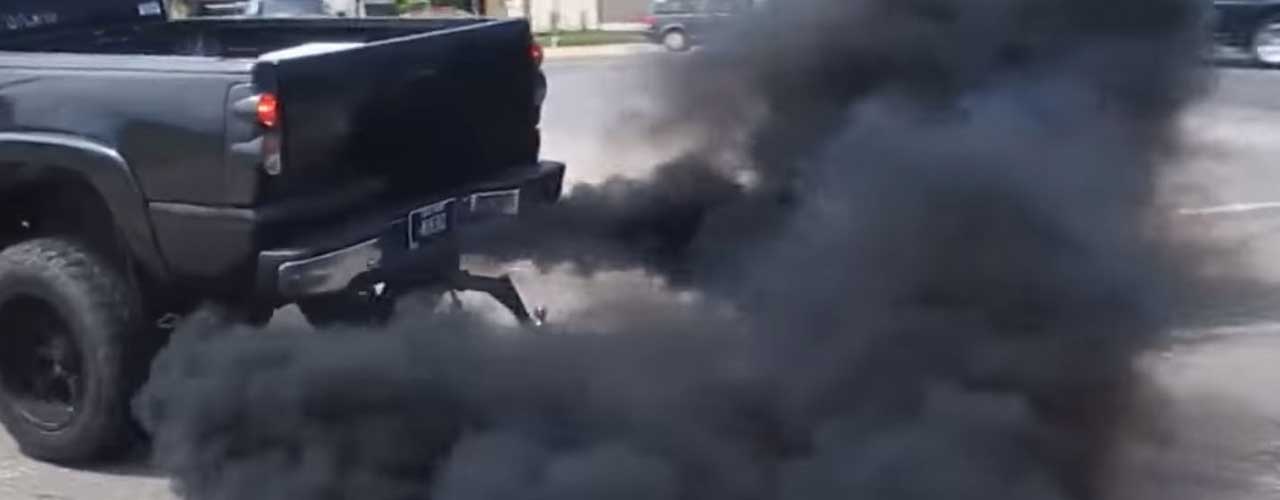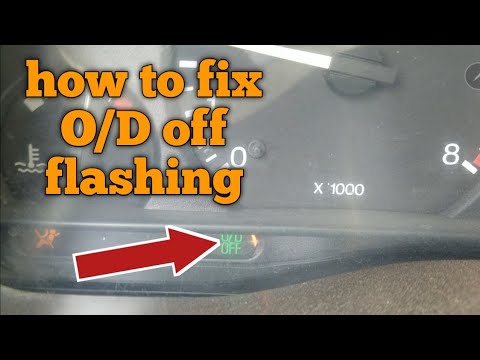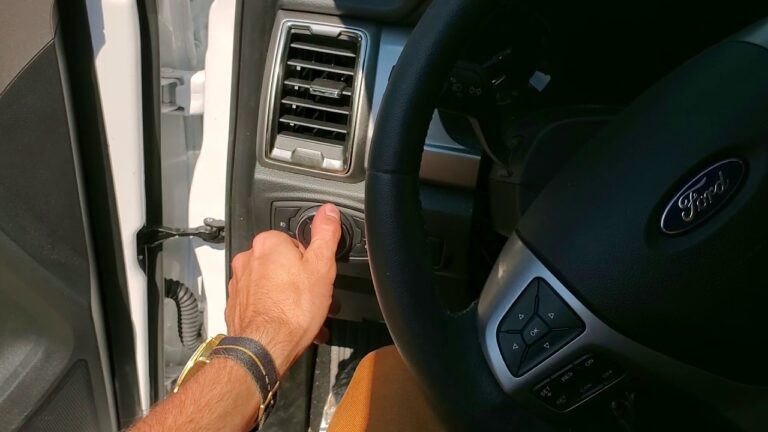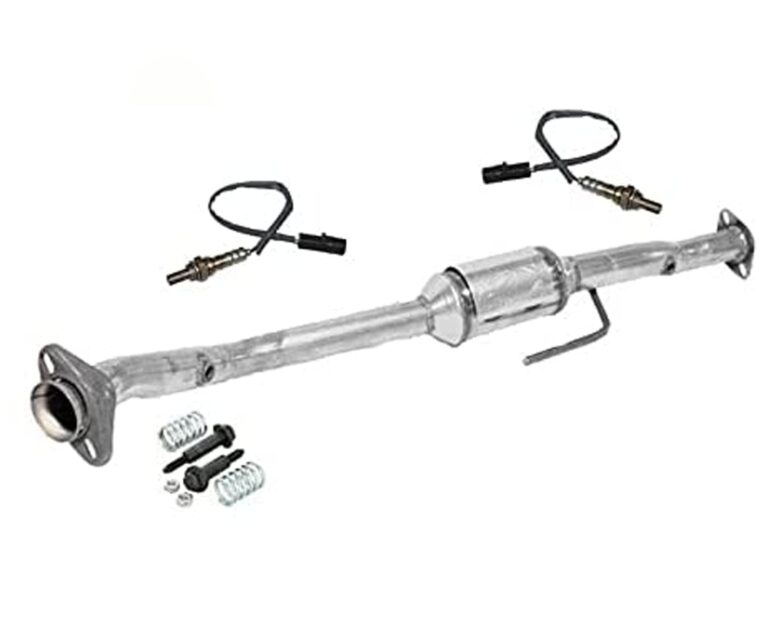Why Does My Ford Ranger Blow Black Smoke?
The ford ranger blows black smoke due to a fuel or engine problem, most commonly caused by a clogged air filter or a malfunctioning fuel injector. Black smoke indicates an excessive fuel-to-air ratio, leading to incomplete combustion and the release of unburned fuel particles.
This issue can also be caused by a faulty oxygen sensor or a malfunctioning turbocharger. Regular maintenance, such as replacing the air filter and addressing any engine issues promptly, can help prevent black smoke emissions. If the problem persists, it is advised to consult a professional mechanic for further diagnosis and repair.
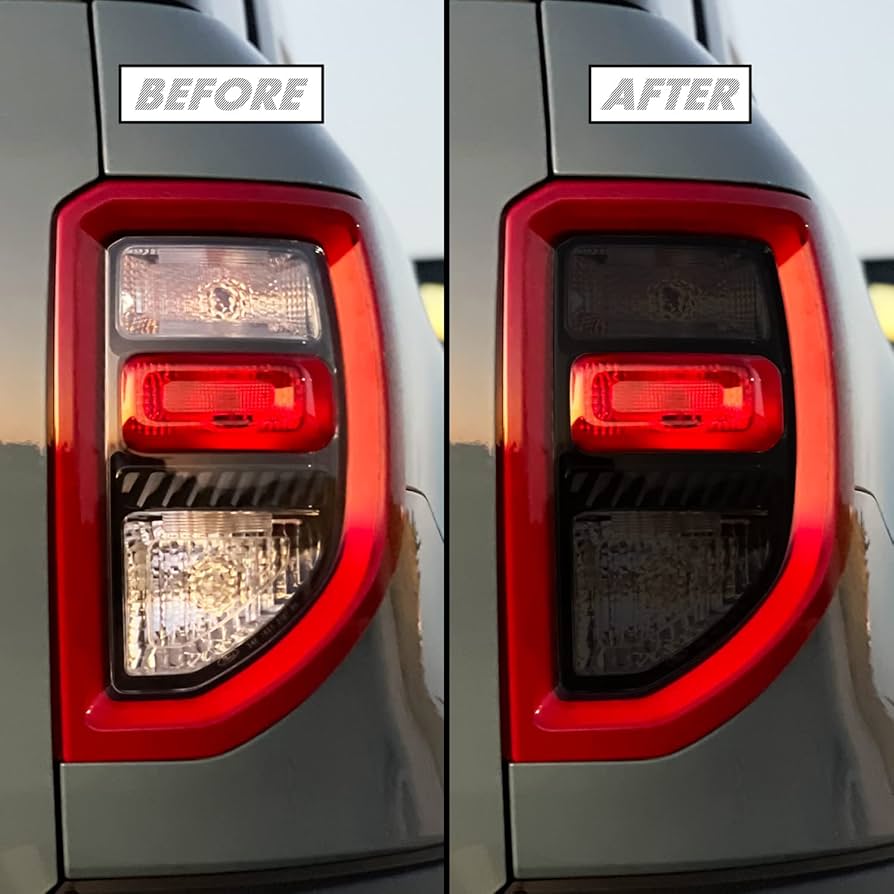
Credit: www.amazon.com
What Causes Black Smoke In Ford Ranger?
Black smoke in your ford ranger can be caused by faulty fuel injectors, air intake issues, clogged air filters, or pressure regulator problems. Faulty fuel injectors can result in an improper fuel-to-air mixture, leading to black smoke. Air intake issues, such as a blocked or restricted airflow, can cause incomplete combustion and black smoke.
Clogged air filters can also restrict the amount of air entering the combustion chamber, resulting in black smoke. Pressure regulator problems can lead to excessive fuel pressure, causing an imbalance in the fuel-to-air ratio and resulting in black smoke. If you notice your ford ranger blowing black smoke, it is important to have it checked by a qualified mechanic to determine the exact cause and address the issue promptly.
Avoid delay in order to maintain your vehicle’s performance and reduce harmful emissions.
Effects Of Black Smoke Emissions
The emission of black smoke from your ford ranger can have several effects. First, it can lead to reduced fuel efficiency, causing you to spend more money on gas. Second, it can indicate engine performance issues, such as clogged fuel injectors or a malfunctioning turbocharger.
These issues can greatly affect the overall performance of your vehicle. Lastly, the environmental impact of black smoke emissions is significant. Black smoke consists of harmful pollutants, including soot and carbon monoxide, which contribute to air pollution and can harm human health.
Therefore, it is crucial to address the underlying causes of black smoke emissions and have your ford ranger inspected by a professional mechanic. By doing so, you can improve fuel efficiency, maintain engine performance, and contribute to a healthier environment.
Diagnosing And Resolving Black Smoke Issues
If your ford ranger blows black smoke, it is essential to diagnose and resolve the issue promptly. Start by inspecting the fuel injectors to ensure they are functioning properly. Next, clean or replace the air filters to improve air flow.
Check for any intake leaks that may be causing excess fuel, leading to black smoke. Lastly, monitor the fuel pressure to ensure it is within the correct range. Following these steps will help you identify and address the root cause of the black smoke problem in your ford ranger.
Don’t hesitate to take action to keep your vehicle running smoothly and efficiently.
Frequently Asked Questions For Why Does My Ford Ranger Blow Black Smoke?
Why Is My Ford Ranger Blowing Black Smoke?
Black smoke from a ford ranger usually indicates a problem with the fuel system. It could be due to issues like a clogged fuel injector, a faulty fuel pressure regulator, or a dirty air filter. Getting your vehicle checked by a mechanic will help diagnose the exact cause and provide a solution.
Can A Bad Turbo Cause Black Smoke?
Yes, a malfunctioning turbocharger can cause black smoke in your ford ranger. If the turbocharger is worn out or damaged, it may not be able to properly compress the air going into the engine. This can result in an imbalance of fuel and air, which causes black smoke during combustion.
How Can I Fix Black Smoke Coming From My Truck’S Exhaust?
To fix black smoke issues in your ford ranger, start by checking and replacing the air filter. Clean or replace the fuel injectors if necessary. Also, make sure the fuel pressure regulator is in good condition. If the problem persists, consult a qualified mechanic to diagnose and repair any other potential causes.
Conclusion
Understanding why your ford ranger blows black smoke is essential to maintaining the health and longevity of your vehicle. By recognizing the potential causes, such as a clogged air filter, faulty fuel injectors, or a malfunctioning egr valve, you can take proactive steps to address the issue.
Regular maintenance, such as changing the air filter regularly, using high-quality fuel, and keeping up with engine tune-ups, can greatly reduce the likelihood of black smoke emission. Additionally, if you notice any other warning signs, like decreased fuel efficiency or a rough idling engine, it is crucial to have your vehicle inspected by a professional mechanic.
By taking these precautions and staying vigilant, you can keep your ford ranger running smoothly and efficiently for years to come, while also minimizing its impact on the environment.

